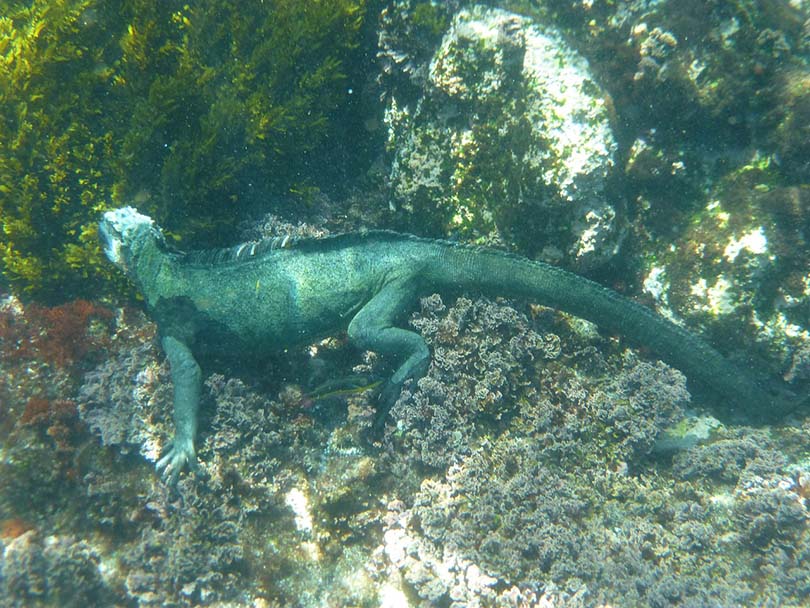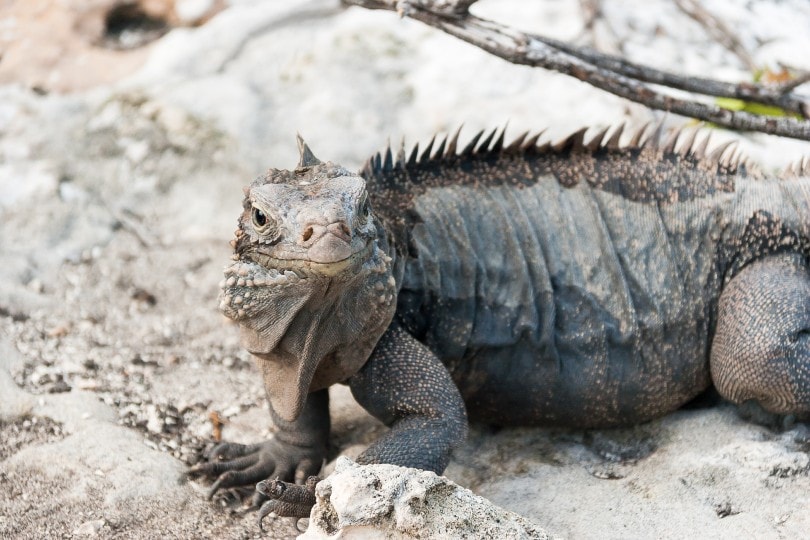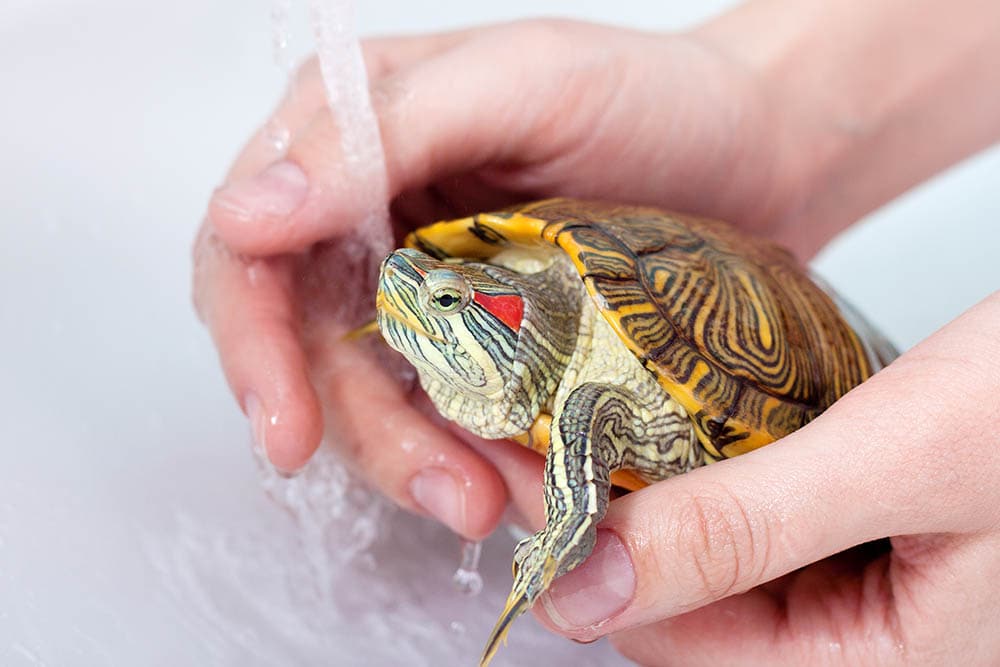
Wild iguanas are found in mainly tropical and subtropical regions where they can grow up to 5 feet and weigh up to 20 pounds. So, can iguanas swim, and do they like it? The answer is yes!
Most iguanas love and enjoy swimming, and naturally, they prefer swimming in familiar waters. However, when in captivity, they may run away when placed in a bathtub; however, never conclude they don’t like water.
You need to introduce your iguana into the water, slowly starting with shallow waters for him to gain confidence. Here you will learn more about iguanas, from how long they stay underwater to their habitats and behavior.
Iguanas in Captivity

Iguana is one of the most popular reptile pets in the United States, though hard to care for appropriately. In the wild, iguanas have an average life span of 20 years.
However, in captivity, their lifespan is wildly unpredictable and based on the level of care and knowledge of the owner.
How Long Do Iguanas Stay Underwater?
Some iguanas species are proficient swimmers and can stay underwater for more than 50 minutes. They mostly do so to escape from predators.
Researchers have observed iguanas entering the waters to float and swim. This is a surprise to many since different iguanas spend most of their time in the trees.
For instance, male marine iguanas can stay underwater for a very long time feeding on algae. In addition, green iguanas are known to go in deep water for an indefinitely long period.
Do Iguanas Breathe When They Are Underwater?

Iguanas lack gills that could enable them to breathe while they are underwater.
Iguanas usually hold their breath for the time they stay underwater rather than breathing. Even if they have humans beat, iguanas tend to differ from humans who can only hold their breath underwater for about two minutes.
However, even if iguanas can hold their breath for an extended period, sea turtles break the record. Sea turtles are record holders in the world for animals that hold their breath underwater for the longest time, up to ten hours.
How Deep Can Iguanas Dive?
Most iguanas are adept divers, with some such as marine iguanas diving to great depths of 99 feet down. However, the majority are short-distance divers.
Iguanas usually dive to look for something to eat and feast upon, like algae. But not many iguanas will do so, despite being hungry. Instead, they will forage for food in shallow areas.
How Does an Iguana Swim Underwater?

You will enjoy watching iguanas swim underwater since they use a fascinating approach to swim. Unlike humans who use their legs and arms to swim, iguanas utilize their tails to move in the water.
Iguanas usually place their front legs beneath their abdomen while swimming, which helps them align their bodies properly. Also, they stretch their back legs straight, pointing backward without steering them. Instead, they use their strong tail to steer as they swim.
Iguanas move through the water by twisting their bodies forth and back along with their tails. At this time, they form a dorsal fin by raising their heads back down to the tail’s tip.
On land, iguanas are speedy, with some running at very great speeds of up to 22 miles per hour. However, this is not the case when it comes to swimming. Most iguana species are slow swimmers.
For example, marine iguanas have been recorded swimming at 1.6 feet per second speeds, which is relatively low. Some have recorded high speeds of up to 3 feet per second. Iguanas usually change their speed as they swim, meaning they cannot retain the same speed for a longer period.
Iguanas Habitats

Different iguana species inhabit various habitats. You can find iguanas in different areas such as deserts, rainforests, lowland forests, rocky regions, and swamp areas.
Typically, iguanas originate from Central America, South America, Mexico, and the Caribbean. Some iguanas who are talented swimmers spend most of their time in the water. They will float or take cover in rivers, streams, and lakes. For instance, green iguanas mostly stay in these water bodies since these are their natural habitats.
How to Give Your Iguana a Bath
Do you know you can bathe your Iguana? Pet owners need to bathe or soak their Iguanas in water because they enjoy swimming.
If it is their first time, you might think your iguana is scared of water, but that is not the case. Steadily introduce your iguanas to bathing before they get used to it.
First, prepare the bathtub. Never bathe your iguana in the kitchen. Use warm water to ensure that your iguana’s body temperature doesn’t drop rapidly since they are cold-blooded.
Make sure you don’t add shampoo or human soap in the water while bathing your iguana. These products may cause your iguana’s skin to dry out. Also, your iguana can drink that water, causing a health hazard.
Soak your iguana for about five minutes, and then increase the timing to 25-30 minutes as he gets used to the water. Use a washcloth or old toothbrush to get rid of any dirt or shedding skin from your iguana’s skin.
Remove your iguana from the bathtub and place him on a towel to dry. Take your iguana in the cage after drying him. Ensure you disinfect the bathtub and the towels. Properly clean all the bathing accessories and keep them well for next time use.
Conclusion
Most iguanas are excellent swimmers and can stay underwater for an extended period. Some get into the water to hide from predators, for enjoyment, or foraging for food.
Their swimming fashion is exciting, and many enjoy watching iguanas swim. The way they hold their breath for long is something fascinating about iguanas.
Featured Image Credit: yubabubbler2, Pixabay







